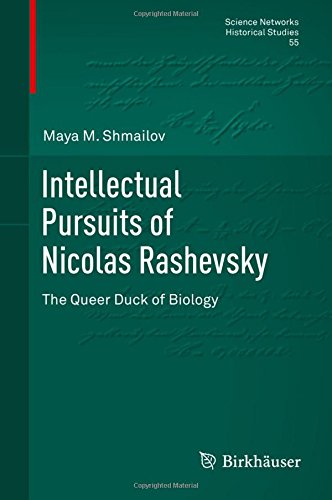

Most ebook files are in PDF format, so you can easily read them using various software such as Foxit Reader or directly on the Google Chrome browser.
Some ebook files are released by publishers in other formats such as .awz, .mobi, .epub, .fb2, etc. You may need to install specific software to read these formats on mobile/PC, such as Calibre.
Please read the tutorial at this link: https://ebookbell.com/faq
We offer FREE conversion to the popular formats you request; however, this may take some time. Therefore, right after payment, please email us, and we will try to provide the service as quickly as possible.
For some exceptional file formats or broken links (if any), please refrain from opening any disputes. Instead, email us first, and we will try to assist within a maximum of 6 hours.
EbookBell Team

4.7
56 reviewsWho was Nicolas Rashevsky? To answer that question, this book draws on Rashevsky’s unexplored personal archival papers and shares interviews with his family, students and friends, as well as discussions with biologists and mathematical biologists, to flesh out and complete the picture.
“Most modern-day biologists have never heard of Rashevsky. Why?” In what constitutes the first detailed biography of theoretical physicist Nicolas Rashevsky (1899-1972), spanning key aspects of his long scientific career, the book captures Rashevsky’s ways of thinking about the place mathematical biology should have in biology and his personal struggle for the acceptance of his views. It brings to light the tension between mathematicians, theoretical physicists and biologists when it comes to the introduction of physico-mathematical tools into biology. Rashevsky’s successes and failures in his efforts to establish mathematical biology as a subfield of biology provide an important test case for understanding the role of theory (in particular mathematics) in understanding the natural world.
With the biological sciences moving towards new vistas of inter- and multi-disciplinary collaborations and research programs, the book will appeal to a wide readership ranging from historians, sociologists, and ethnographers of American science and culture to students and general readers with an interest in the history of the life sciences, mathematical biology and the social construction of science.